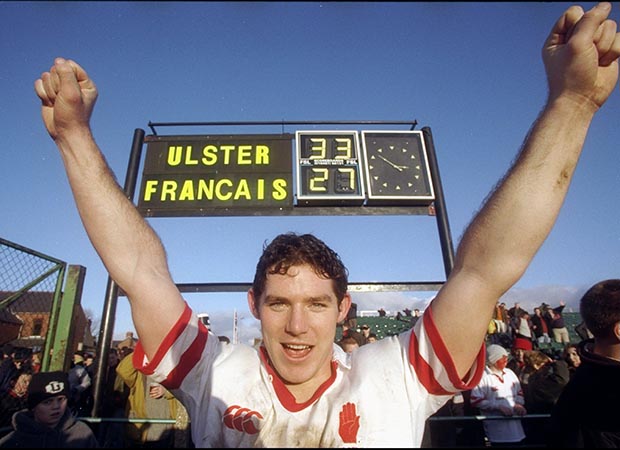
 1999: Ulster 33 Stade Francais 27
1999: Ulster 33 Stade Francais 27
The English clubs weren’t involved in the 1998-9 competition but frankly nobody really missed them and Ulster’s magical mystery tour was one of the great stories in the European Cup’s 20-year history.
It came at a tense time politically for the Province when feelgood stories were desperately needed and also at a time when there was a perceived bias in some quarters against Ulster players when it came to Ireland selection. Winning the European Cup in Dublin was sweet indeed but this win over a star-studded Stade side was the defining moment.
In Ulster’s favour was a roaring 20,000 Ravenhill crowd and the confidence of having beaten Toulouse twice in that season’s competition – once in their pool game and then again in the quarter-final. Working against Ulster was a glorious springlike day in early January and a Stade team who were strong favourites to win the tournament.
Initially the powerful Stade pack took a firm grip and it needed the rock solid goal- kicking of Simon Mason to keep Ulster in touch. The whole atmosphere of the game changed early in the second half though when skipper David Humphreys scored a glorious try after launching a counter attack deep in his own 22.
The Ireland fly-half chipped to wing Sheldon Coulter, collected a return pass and sprinted 65 yards to score. Ravenhill went bonkers, energy levels doubled and Ulster were on their way.
“We spent two whole weeks preparing for rain, wind, mud, slime and filth. And what did we find in Belfast? Sunshine, a gentle breeze and a nice wide pitch,” recalls Stade flanker Richard Poole-Jones.
“Perfect rugby conditions, really. We didn’t have the basic commonsense, to throw all the wet-weather preparations out of the window and play our natural game. It’s a bad day for us, that’s for sure but how can you complain when the better side wins? They played more rugby than us. End of story.”
Champagne moment: It had to be Humphreys’ try. “I will never forget the noise from the crowd, it was phenomenal,” recalls Humphreys. “From there on in, I was able to say to the team, ‘just imagine how it will be if we win, it’s got to be worth fighting for’. And we fought, every inch of the way.”
2000: Toulouse 25 Munster 31
This was the season that Munster became a major force in Europe.
Narrow home and away wins over Saracens took them through the pool stage and a quarter-final victory over Stade Francais at Thomond Park set them up for their ‘mission impossible’ game against in-form Toulouse in the furnace-like heat of Bordeaux’s Stade Chaban Delmas.
Summer had arrived early in the Gironde and the draining weather seemed likely to nullify the power of the Munster pack but instead Mick Galwey’s team cleverly played out of character, kept the game fluid and took an unsuspecting Toulouse on at their own game.
Quite a few members of the team were also riding high in confidence after Ireland had beaten France in Paris for the first time in 28 years a couple of weeks earlier.
John Hayes scored an early try. Ronan O’Gara added a second after a length of the field counter attack by the Irish side and Jason Holland finished the game off as a contest with an interception try.
Jerome Cazalbou scored a consolation try deep in injury time to give the impression of a close game. In reality Munster had dominated from start to finish.
“That Bordeaux semi-final is right up there with any in Munster’s rugby history,” insists Galwey. “It was the day we announced ourselves as serious European Cup contenders and it was the day Munster rugby fully embraced professionalism. Once we made that leap mentally, then all things were possible.
“You can’t win all the time but Munster have been a major competitive force in professional rugby ever since Bordeaux 2000. We set a benchmark against Toulouse that day in terms of commitment, stamina and the quality of rugby.”
Champagne moment: When hooker Keith Wood ‘smoked’ Emile N’tamack on the outside: “It happened, it’s there on Youtube if you don’t believe me,” pleads Wood. “But it was a bitter sweet moment because I ripped a calf muscle in the process. But, to be fair, it was my proudest ever injury.”
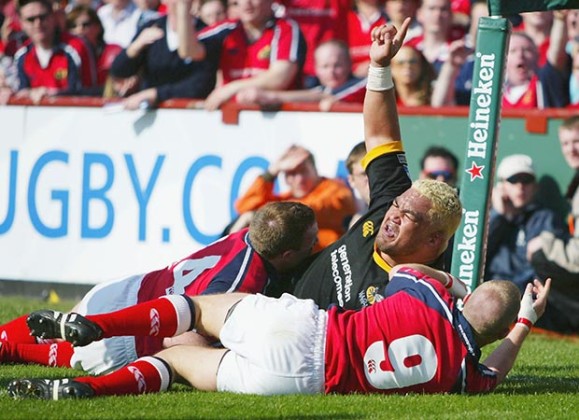 2004: Munster 32 Wasps 37
2004: Munster 32 Wasps 37
A match which is still often described as the best club match ever, certainly in the Northern Hemisphere featuring two great Heineken Cup sides although at the time neither side had yet claimed the trophy and were hungry as hell for success.
Both Munster and Wasps had qualified impressively from their pools while the latter had ruthlessly put Gloucester to the sword in their quarter-final 34-3.
Munster had found themselves in an entertaining shoot-out with Stade, winning 37-32, and Wasps duly took note that although the Munstermen were playing with more freedom their defence was, perhaps, not as rock solid as usual.
Nobody can deny that Wasps, outscoring their opponents five tries to two eventually deserved to win but they had to do it the hard way coming from behind after Munster had built a ten-point lead going into the final quarter. Munster had prospered through the goalkicking of firstly Ronan O’Gara who landed three kicks before departing with a hamstring strain and then his replacement Jason Holland who kicked three penalties himself and before they added tries from captain Jim Williams and Tony Foley.
Wasps were on fire in attack, though, and had kept in touch with tries by Josh Lewsey, Paul Volley and Mark van Gisbergen before they went in desperate search of victory in the closing minutes when Munster were down to 14 men following a yellow card for Rob Henderson. First Alex King kicked a penalty, then Tom Voyce raced in for a try and finally Trevor Leota rumbled over for the decisive score.
“We were definitely in a hole at 32-22 down,” recalls Lawrence Dallaglio. “But there were still 20 minutes left and we convinced ourselves we could do it. In terms of intensity, skill and atmosphere there was absolutely no difference between that and a top level international.
“It is one of the very best games of rugby I have ever played in.”
Champagne moment: Big Trevor Leota crashing over for the winning try. “It takes us 10 months to get him fit but when his weight’s down he’s mobile and plays good rugby,” commented Wasps coach Warren Gatland afterwards. “He’s been known to sneak off to McDonald’s and KFC from time to time but he can do whatever he wants tonight.”
2009: Cardiff 26 Leicester 26 (aet, decided 7-6 on penalties)
Leicester were cruising at 26-12 on the hour when they suddenly lost the plot at the Millennium. Their fans started singing: “Swing low, sweet chariot,” which suddenly galvanised the home crowd who up to that point had been giving their underperforming team a hard time.
And then Tigers lost discipline and two players – Craig Newby and Geordan Murphy being sent to the bin in quick succession. Cardiff turned up the wick and two tries from Jamie Roberts and Tom James – both converted by Nicky Robinson – sent the match into extra time.
Neither exhausted side could find a way of scoring in the 20 minutes of extra time so we had a rugby first, a penalty shoot-out from the 22 in front of the posts. Each side nominated their first five kickers and if the match was undecided after that it was down to volunteers.
So the two sides started kicking alternately. Ben Blair, Julien Dupuy, Nicky Robinson, Sam Vesty, Leigh Halfpenny, Geordan Murphy and Ceri Sweeney all found the target before Johne Murphy’s miss left the door open for the Blues.
Cardiff fans prepared to celebrate but Tom James hooked his kick wide, leaving Scott Hamilton, Tom Shanklin, Aaron Mauger, Richie Rees and Craig Newby to keep the shoot-out going with successful efforts.
Then Wales flanker Williams stepped forward confidently, but a wild hook allowed Leicester No.8 Jordan Crane to deliver a nerveless winning kick.
“This was unchartered territory for rugby and we are all learning, but I found that very uncomfortable to watch,” said Leicester chief executive Peter Wheeler. “I lost interest very early on and could scarcely look. In rugby, above all games, you win together or lose together. It just didn’t feel right.
“Just imagine if it had gone on for a couple more kicks. For all I know Martin Castrogiovanni or Gethin Jenkins might be useful goalkickers, but almost certainly not, and how humiliating and illogical it would have been for two of the best in the world at what they do, having to decide a European Cup semi-final by attempting something that they never do.”
Champagne moment: Much as you sympathise with Martyn Williams, chapeau Jordan Crane for slotting over that final kick. “I actually enjoyed it. I’ve taken a few in training, although I am in no hurry to take another kick,” commented the Leicester man.
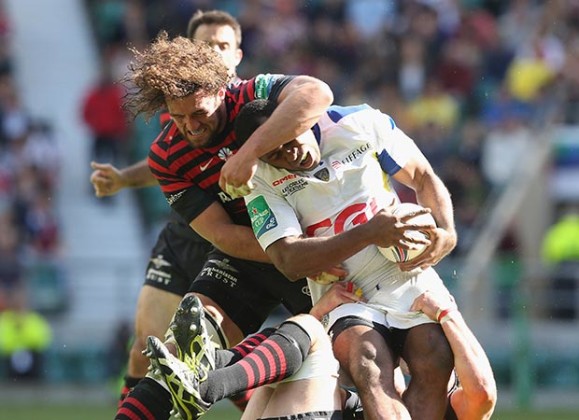 2014: Saracens 46 Clermont 6
2014: Saracens 46 Clermont 6
The greatest ever semi-final performance in the competition came from Saracens last year when they destroyed a full strength Clermont 46-6, a record winning margin while their six tries was also a competition record for a semi-final.
The foundation of their victory, however, was an extraordinarily physical defence which contained and frustrated Clermont to the distraction.
The Saracens ‘wolfpack’ was led by Jacques Burger who put in a 69-minute shift which contained 27 tackles, most of them worthy of the highlights reel. Burger was possibly working off over a year of injury hell having required major knee surgery to first break and realign his tibia which had started to bow alarmingly.
Brilliant as they were Saracens will probably admit that things went their way after an early try from Chris Ashton with Nigel Owens ordering a penalty try when Brock James batted the ball out of the in-goal area and then disallowing a Clermont try for obstruction in quick succession.
Having made a flying start, though, Saracens didn’t let up at any stage and poured on the hurt with further tries from Owen Farrell, Chris Wyles, Tim Streather and Ashton again. Alex Goode converted all but one of the kicks and added a penalty along with Marcelo Bosch.
“We all realise that today was one of those days where everything that could have gone right went right but it was a tremendous victory nonetheless,” said Saracens coach Mark McCall. “Just after the penalty try, they had a period of pressure in our 22 and we had to defend for our lives against a really good team. We kept them out and that was significant.”
Champagne moment: Any one of Burger’s big hits. “Jacques story is incredible,” said McCall. “He was out of rugby for nearly 18 months and this time last year it looked over for him.
“People don’t know what he does every day – his special ice machine is his best friend keeping the swelling down on his knee – but that is the sacrifice he makes to play in game like this. He was inspirational today, with him you know he will empty everything for the team.”

1 Comment
You must be logged in to post a comment Login
Leave a Reply
Cancel reply
Leave a Reply
You must be logged in to post a comment.
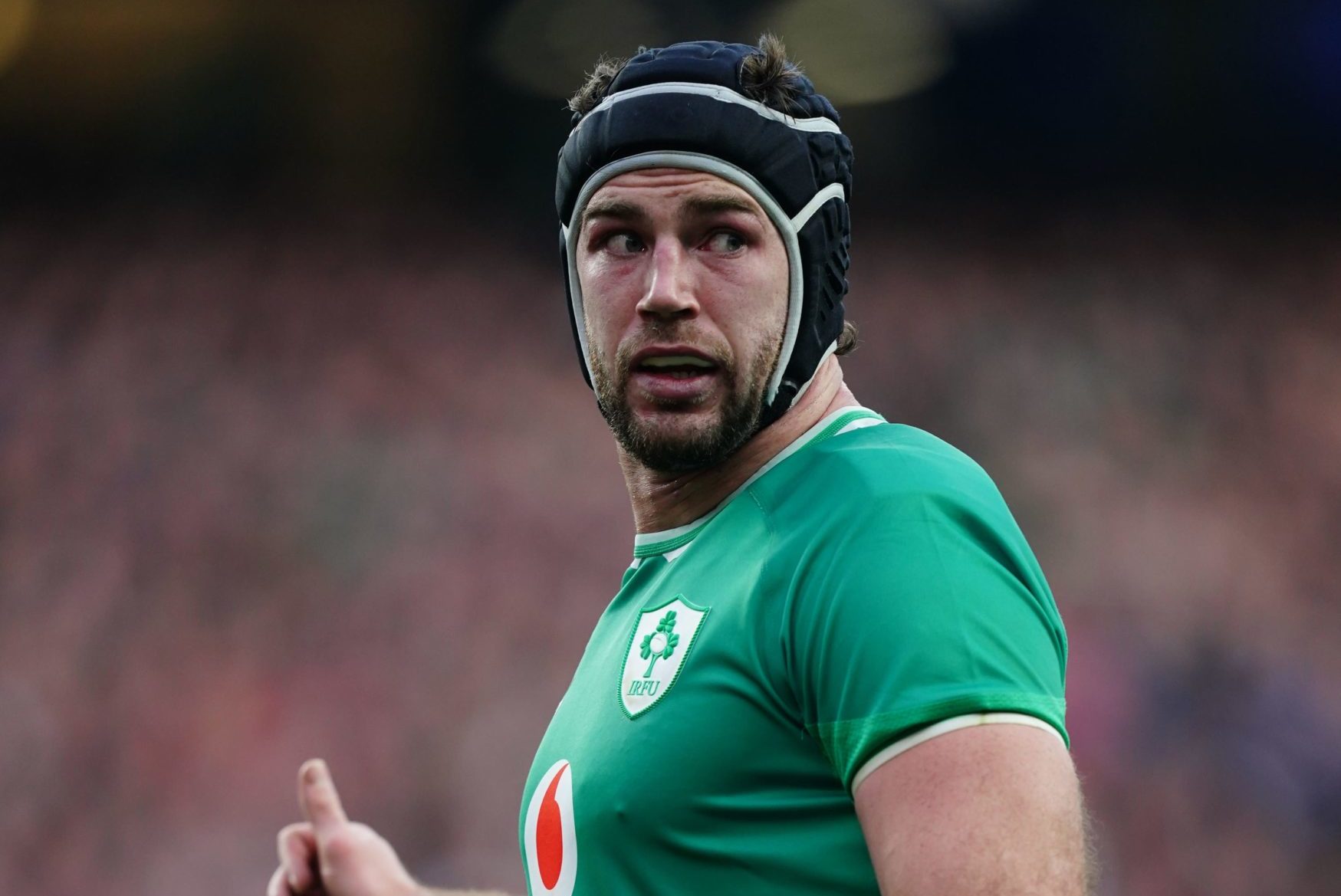
British and Irish Lions
British and Irish Lions Watch: Caelan Doris confirmed to miss the tour with injury

















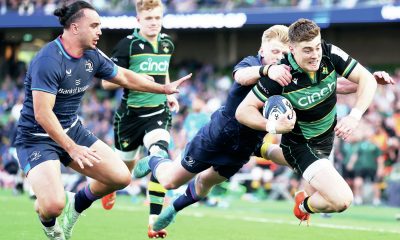

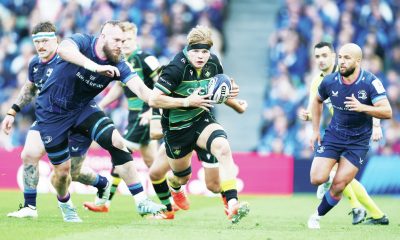

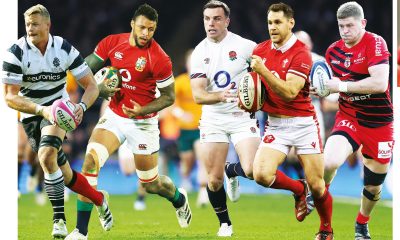

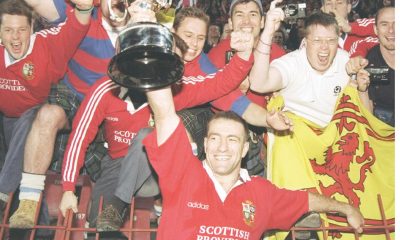

Pingback: anonymous